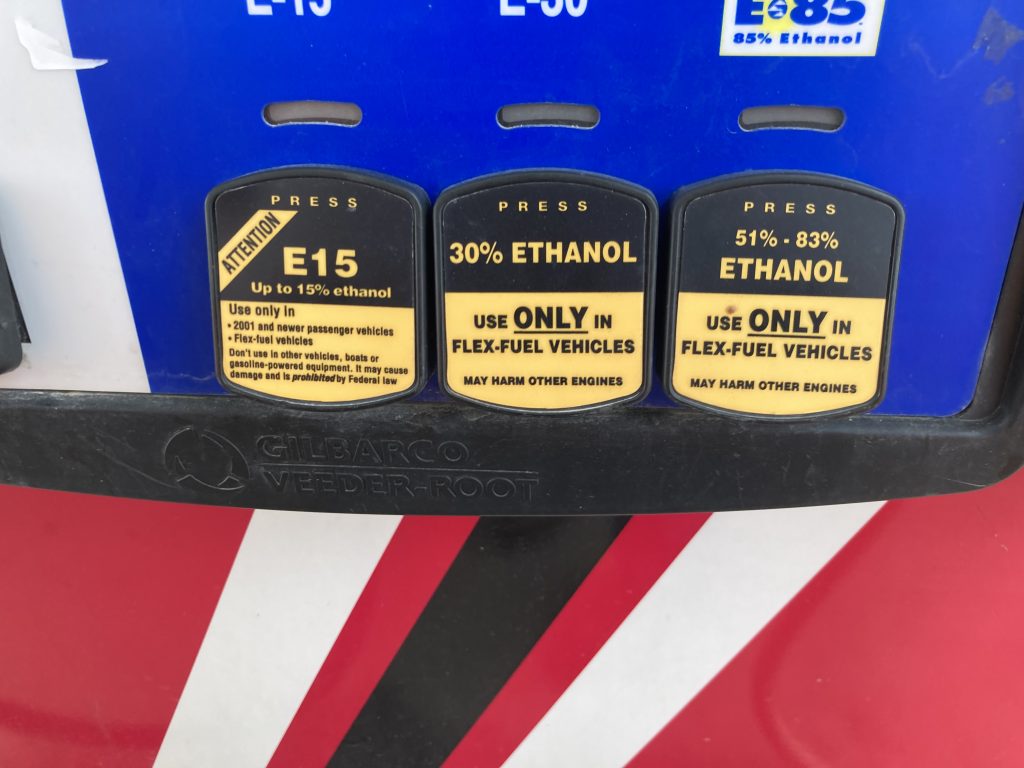I read your article about, “Clearing Up Myths About E85 And Ethanol: 16 Things You Need to Know.” While I have read a lot about ethanol usage, your Q&A article was very good. But I still have a couple of questions.
1) Could an engine be rebuilt or designed that could use E85 only. If so, could that engine be used for normal street car and could it get about the same MPG as a current gasoline engine?
2) Could an engine be rebuilt or designed to run on just ethanol with no added gasoline and get about the same MPG as a similar engine using gasoline.
I have heard much talk that the lower MPG on E85 cars is because they have to stay compatible with gasoline, so they cannot utilize much of the benefits of ethanol.
Thank you again for your article and your time.
E.R.
You are entirely correct on your first question and your final comment on mpg and E85.
I think you could build a normally aspirated street engine at 13:1 static compression ratio that would then have to be an E85-only engine. With this higher octane fuel you can take advantage of the higher compression ratio with a still streetable medium duration camshaft. What this accomplishes is much higher part-throttle and wide-open-throttle (WOT) cylinder pressure which makes additional power even at part throttle. This allows the engine to extract more work from the same amount of fuel compared to running it at 9:1 or 10:1 compression ratio.
In the past when people or magazines did comparisons of gasoline to E85 for mileage purposes, the tests always revealed that gasoline offered better mileage. That’s because the engine was optimized for the gasoline octane—not for the higher octane offered by E85. So to be fair, if we built an engine that took advantage of E85’s higher octane, I’m convinced the engine could offer equal fuel mileage that you might obtain from a gasoline performance engine.
This has always been the problem with comparisons of Flex Fuel engines running pump gasoline against E85. The engine used for the test was optimized to run on the lower octane pump gasoline.
Jeff wrote another article on fuel blending that may interest you: Some Calculations & Guidelines for Blending Fuel Octanes
To emphasize this point, consider a conservative performance built 5.3L (325ci) engine using 91 octane pump gas should make around 400 to 410 lb.-ft. of torque and around 425 hp. If we use this as a baseline and then add two full compression ratios to create 12:1—this should also add a minimum of 6 to 8 percent more power. Let’s average that to 7 percent which is worth roughly 30 lb.-ft. of torque and 30 horsepower, putting our mild 5.3L at 455 hp! (That would be a fun ride.)
You may also want to read this: What You Need to Know About Ethanol, Fuel Blends & Your Fuel Line
The negative side of this idea is this combination might not work well as a cross country engine due to inaccessibility of E85 fuel for mixing to create the E50 fuel required. To compensate if you don’t have access to E85 for mixing for a tank of fuel or so, it would be best to use an EFI program that could quickly pull up a reduced ignition timing curve that would protect the engine from detonation until you could add the necessary ethanol to bring the octane back up to E50 levels. A typical anti-knock index (AKI) for E50 would be somewhere around 95 to 96 octane.
Plus, mixing E85 with 91 octane pump gas makes the net price of the fuel less expensive than straight 91! So you win on both counts.


Aren’t most of Ken Blocks vehicles pure ethanol monsters?
I considered E85 for my new build’s a few year’s ago . The problem is I can’t find it in my part of Oklahoma and when going on trip’s it just wasn’t offered in the state’s I traveled though.
After a lot of research I decided to use natural gas.
It has a 140 octane rating and I can run a 14-1 compression ratio on the street. It is avalible all most everywhere I travel to and for the last 3 year’s the cost was $1.79 a gallon but went up to $2.09 about 2 year’s ago and has been holding at that price.
As for gas mileage I was getting 12.7 with gas.
I just checked my MPG on my 13 F-250 for the first time in 18 months and was surprised to see an 18.1 mpg over that time.
I wouldn’t run anything else.